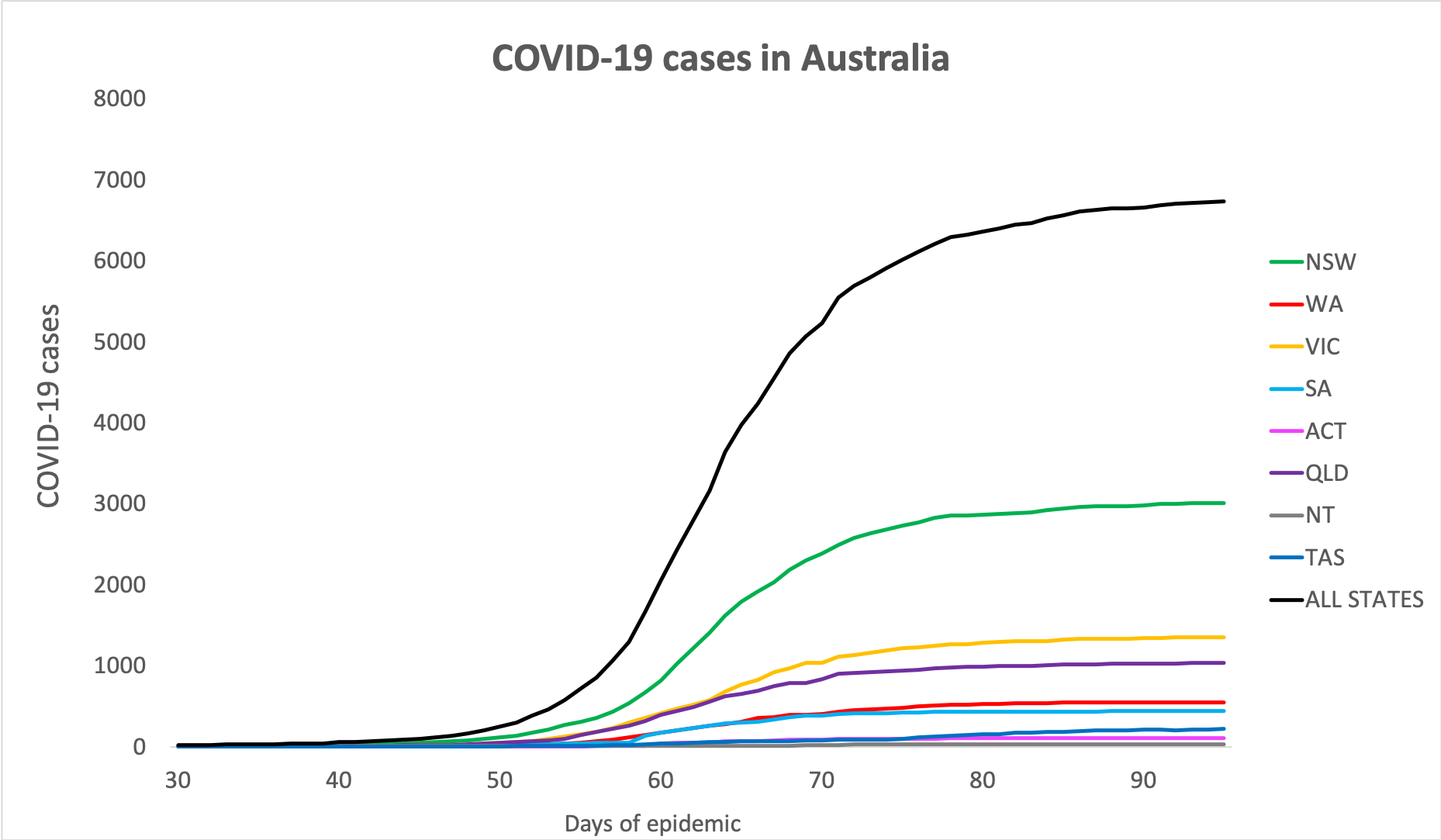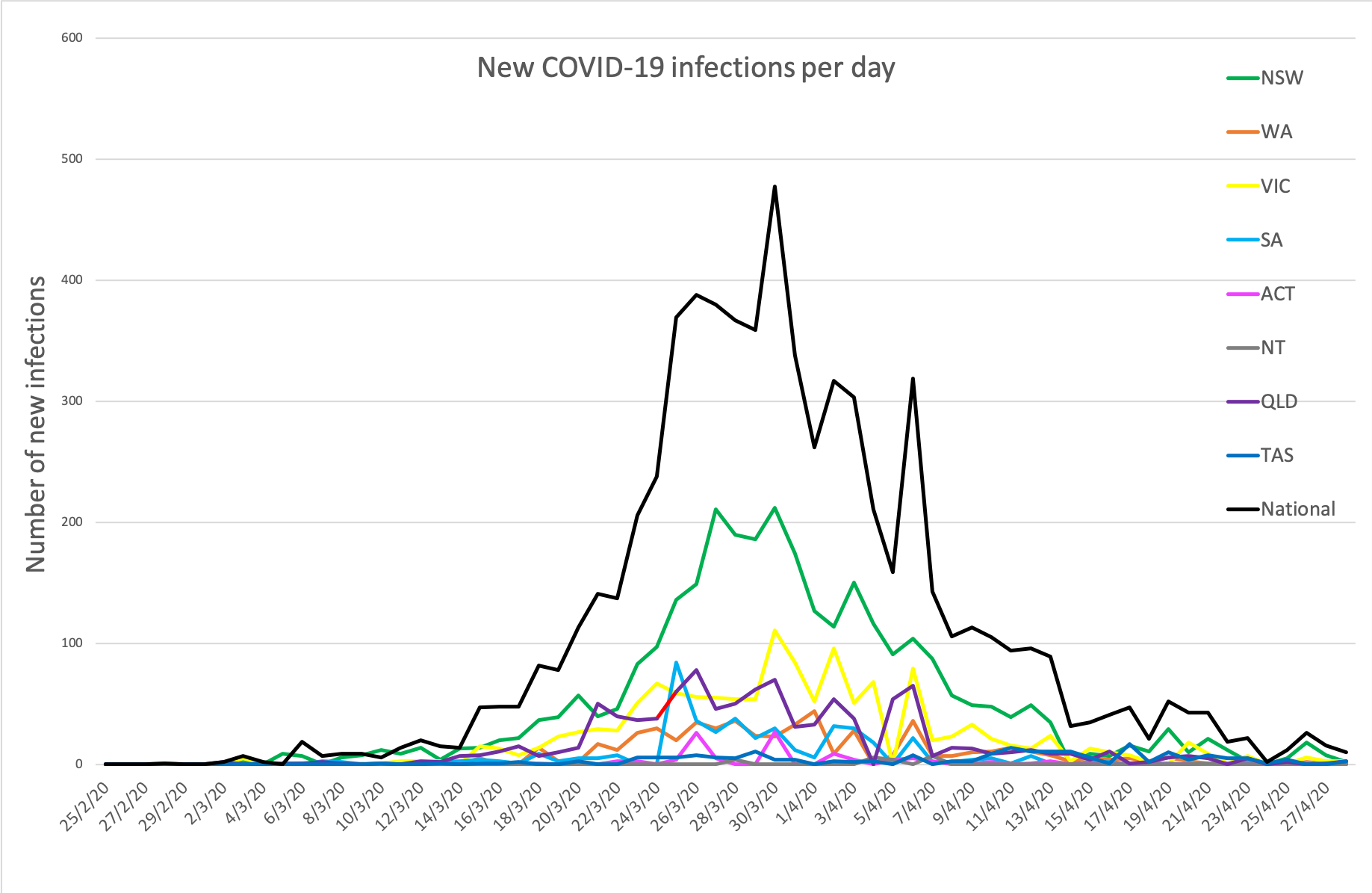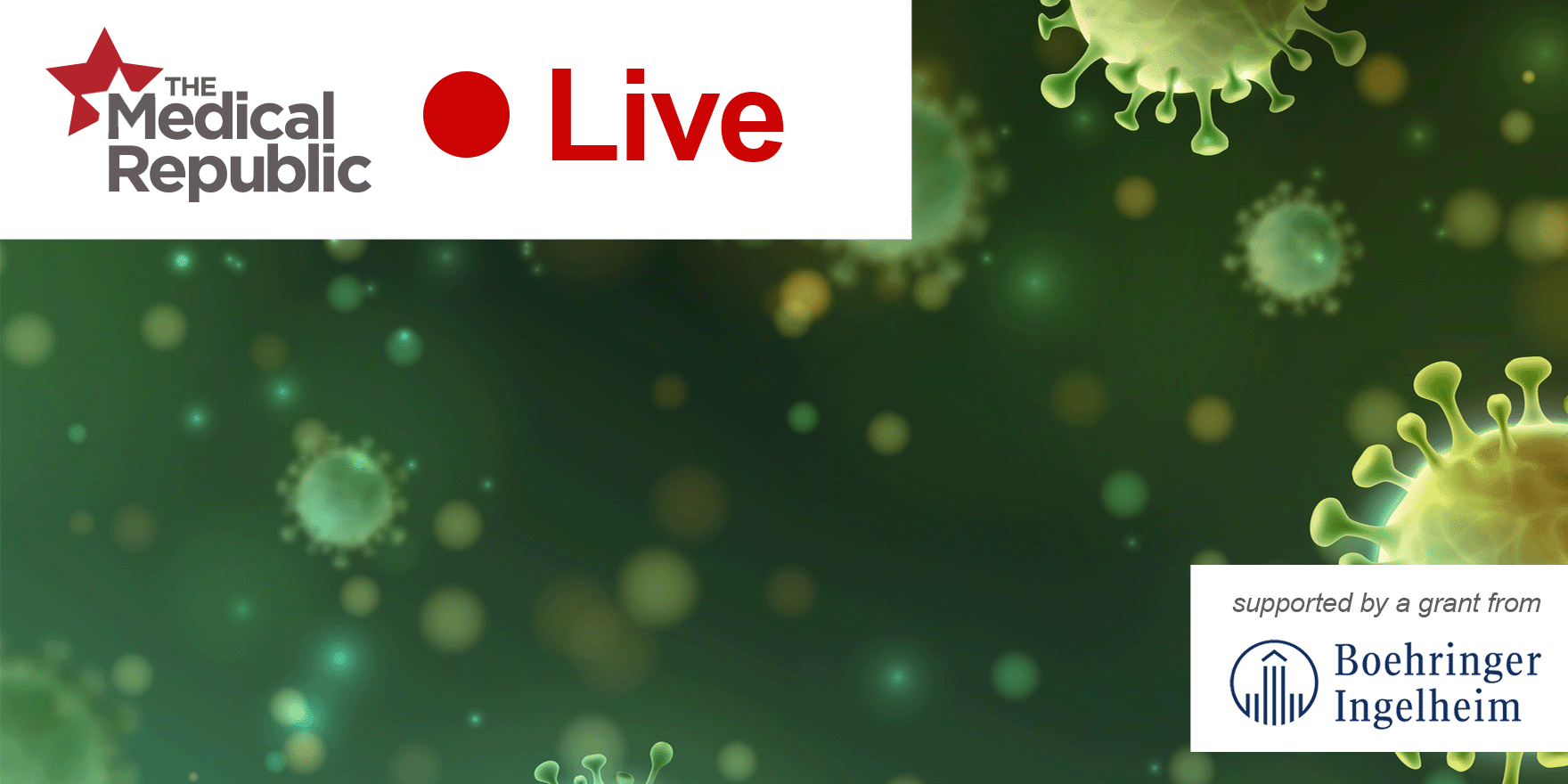Gastrointestinal symptoms of COVID-19 – even if mild – could point to a higher risk of hospitalisation, study suggests.
Welcome to Wednesday afternoon on The Medical Republic‘s live COVID-19 blog.
Got any tips, comments or feedback? Email me at bianca@biancanogrady.com.
The latest
- Gastrointestinal COVID-19 symptoms could point to higher risk of hospitalisation.
- Rapid reports on COVID-19 questions being delivered by collaboration of Australian and NZ scientists.
- SARS-CoV-2 RNA was detected in untreated wastewater from the earliest days of the pandemic in Spain.
- Want the latest evidence-based information on questions such as the potential seasonality of COVID-19, the possibility of reinfection, or the feasibility of wastewater monitoring for population-based surveillance?
A collaboration of Australian and New Zealand scientists and science organisations – convened and chaired by Australia’s Chief Scientist Dr Alan Finkel – has formed the Rapid Research Information Forum, which aims to answer the most pressing questions about the pandemic.
They will publish reports in response to requests from the minister, with the above three questions being the first cabs off the rank. Reports are expected soon on questions such as serological testing for COVID-19, the impact of the pandemic on Australia’s research workforce, and the most promising vaccines and treatments currently being developed around the world. The reports can be found online here.
4.08pm, 29 April
- Want to check out the latest NSW infection figures by postcode? TMR‘s Felicity Nelson has it covered:
[covid-19-graph]COVID-19CaseLoadbyState_15861732214150/BubbleMap[/covid-19-graph]
- Gastrointestinal symptoms of COVID-19 – even if mild – could point to a higher risk of hospitalisation, research suggests.
A paper published on the non-peer-reviewed MedRxiv preprint server presented data on 207 consecutive patients with COVID-19 presenting to a US hospital, just over one-third of whom had gastrointestinal symptoms such as nausea/vomiting, diarrhoea, abdominal pain or loss of appetite. In 90% of these, the symptoms were described as mild, but after controlling for demographics and disease severity, researchers calculate that any gastrointestinal symptoms were associated with a nearly five-fold higher odds of hospitalisation.
Those with diarrhoea had a more than seven-fold higher likelihood of hospitalisation, while nausea or vomiting were associated with four-fold higher odds.
The authors commented that the mechanism of gastrointestinal involvement of SARS-CoV-2 infection wasn’t known, but the angiotensin-converting enzyme 2 – which is known as a critical cellular receptor for Sars-CoV-2 – is ‘abundantly expressed’ in the gastrointestinal tract.
The study didn’t include data on outcomes, but the authors suggested that assessment of gastrointestinal symptoms could be included in the initial clinical evaluation and decision making.
- A Chinese study has affirmed the benefits of proper PPE in protecting healthcare workers, finding no infections in healthcare workers equipped with PPE compared to high rates among those who were affected by PPE shortages in the early stages of the pandemic.
In a paper published on the non-peer-reviewed preprint server MedRxiv, researchers reported on COVID-19 infection rates among two groups of healthcare workers – 142 who travelled from Hefei to work in Wuhan and 284 who remained in Hefei – and compared those with the rates of infection among healthcare workers in Hubei province (of which Wuhan is the capital) in the early days of the pandemic.
The two groups of healthcare workers from Hefei were all given full PPE, and the study found not a single one contracted COVID-19.
However prior to this, the availability of PPE for healthcare workers in Hubei province was less than 10% of demand and hundreds of healthcare workers were infected; so much so that healthcare workers in Hubei accounted for over 90% of healthcare workers worldwide.
“Therefore, it is critical and urgent to ensure sufficient PPE in health care workplace to 314 protect HCWs from COVID-19 infection while they are fighting against the pandemic,” the authors wrote.
- Around half a million COVID-19 tests have been done across Australia so far, and the Federal Government has secured another 10 million test kits, according to health minister Greg Hunt.
Chief Medical Officer Brendan Murphy said in a statement that the government was looking at an expanding testing program of anyone with acute respiratory infection symptoms, increased testing of contacts, and of frontline health and aged care workers.
- Analysis of metropolitan wastewater samples collected from the first days of the COVID-19 pandemic in Valencia, Spain suggest that community transmission was happening earlier than previously thought.
In a paper published on the non-peer-reviewed preprint server MedRxiv, researchers reported their study of wastewater samples collected from February 12 to April 14 from three different treatment plants. They were able to detected SARS-CoV-2 RNA in the samples using RT-PCR even as far back as February 24 – the day that the first case of COVID-19 was confirmed in the area – providing what the authors said was the earliest evidence that the virus was circulating in the community.
“This validates wastewater RT-qPCR analysis as a sensitive and reliable technique for early detection of SARS-CoV-2 outbreaks,” the authors wrote. They also noted that the amount of viral RNA detected increased over time, and plateaued faster than the declared cases in the region, which suggested that wastewater monitoring could be used for epidemiological surveillance of the disease.
Researchers also tested treated wastewater, which is routinely discharged out to sea or used for irrigation, and found no evidence of viral RNA in all nine samples taken. They said this confirmed that current wastewater treatment procedures – at least in this region – efficiently clear the virus, but they raised concerns about waterborne transmission from less well-treated sewage in other countries.
- Here are the latest confirmed COVID-19 infection rates from around Australia to 3pm yesterday:
National – 6731 (up 11) with 84 deaths and 5,626 reported as recovered
ACT – 106
NSW – 3009
NT – 27
QLD – 1033
SA – 438
TAS – 217
VIC – 1351
WA – 550


Disclaimer: The content on the Medical Republic COVID-19 blog is independently created by Medical Republic without input from Boehringer Ingelheim Pty Ltd. The views, information, or opinions expressed on the Medical Republic COVID-19 blog are Medical Republic’s own and do not necessarily represent those of Boehringer Ingelheim Pty Ltd. Boehringer Ingelheim Pty Ltd is not responsible for and does not verify the accuracy of any content on the Medical Republic COVID-19 blog.


